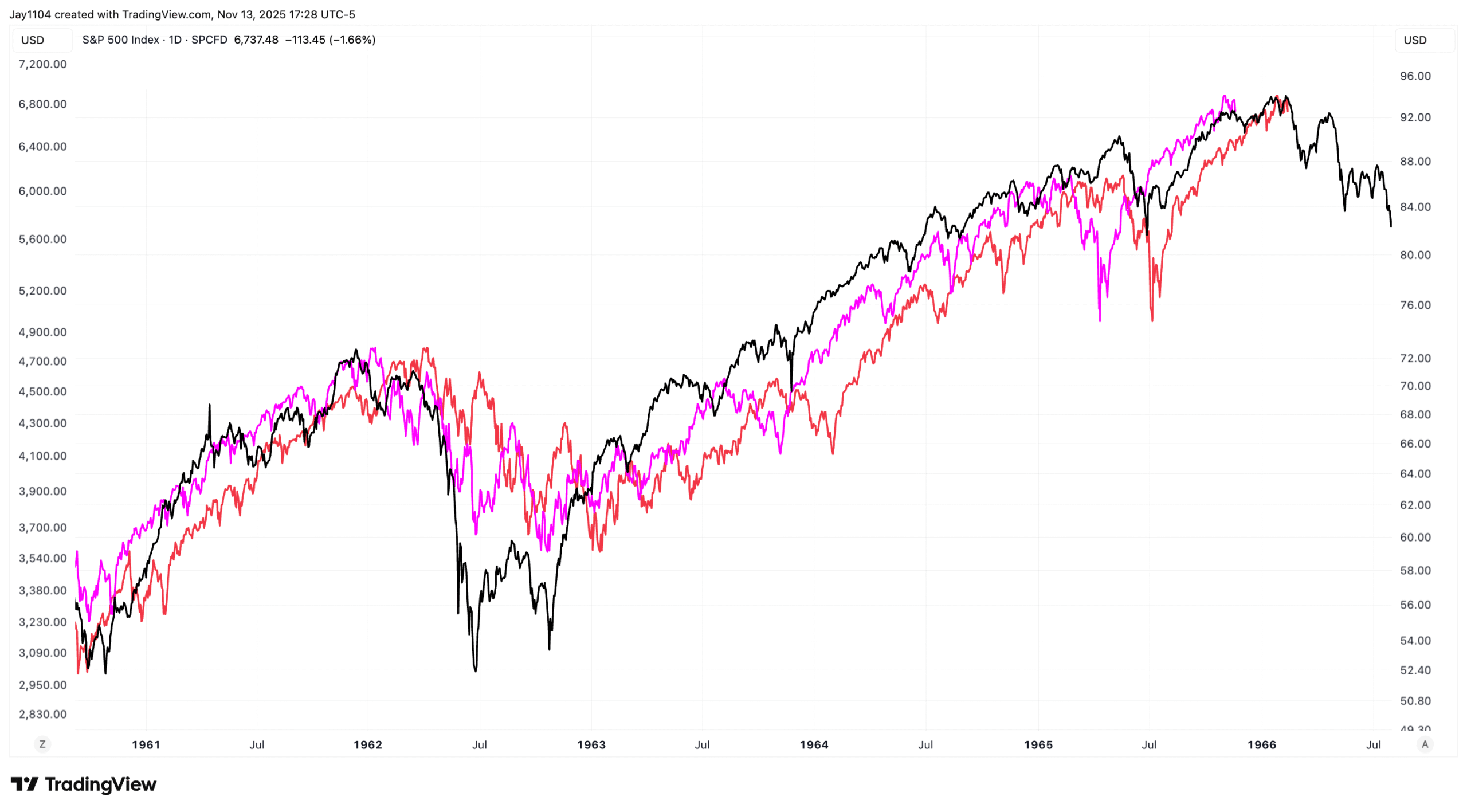Sun Valley Gold sells Vista Gold (VGZ) shares worth $2.16 million
It was not a good day for the market, with the S&P 500 trading down by about 1.7%. Overall, Thursday had a different feel for me, and I think the main reason is what we’re seeing in some AI-related names like Oracle (NYSE:ORCL) and CoreWeave (NASDAQ:CRWV), which have both been really decimated over the past couple of days and weeks.
It’s also interesting to see their credit default swaps widening quite a bit, along with broader market credit spreads. It paints a picture of a market that is now beginning to doubt the AI trade.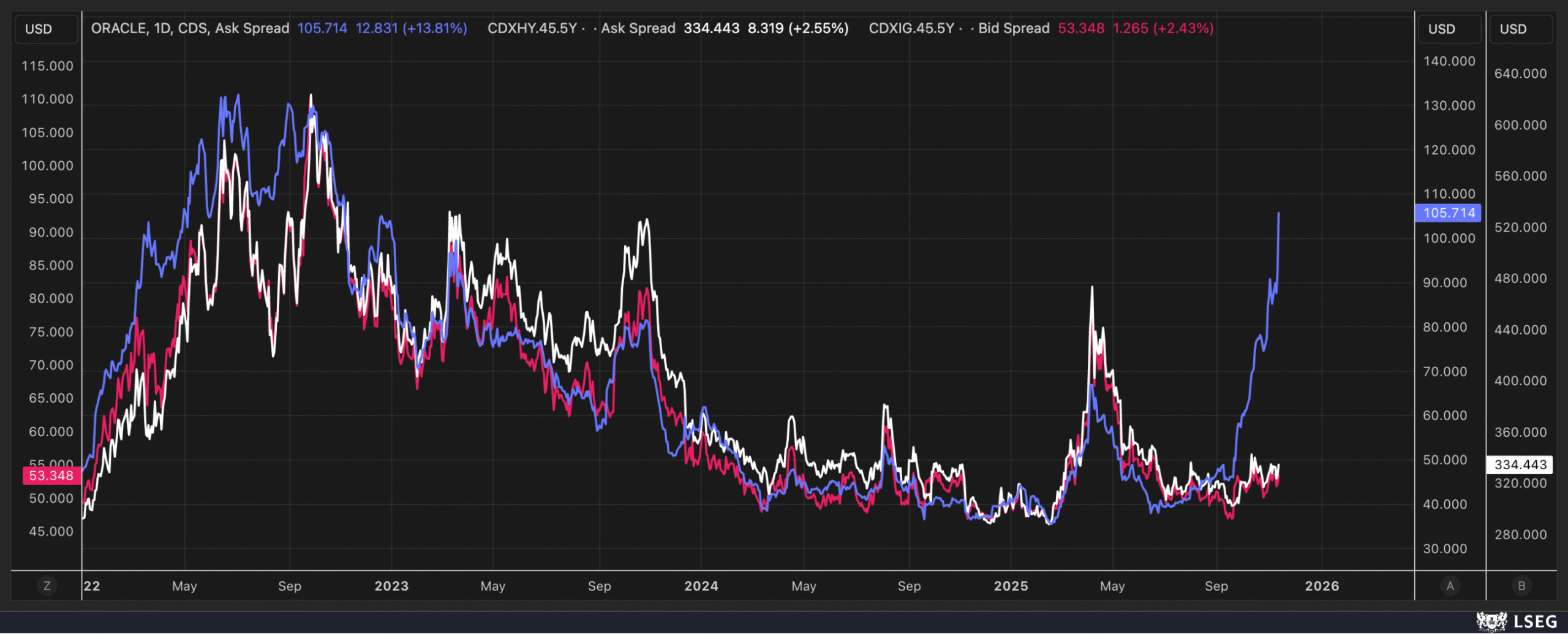
It’s not just happening in the US, either. We’ve seen the same dynamic in SoftBank, a stock we’ve focused on in the past — it had been rising alongside implied volatility, but over the last week or two, it’s given back significant gains. While it’s still up substantially, the pullback is notable. I think this is an interesting development we haven’t seen before.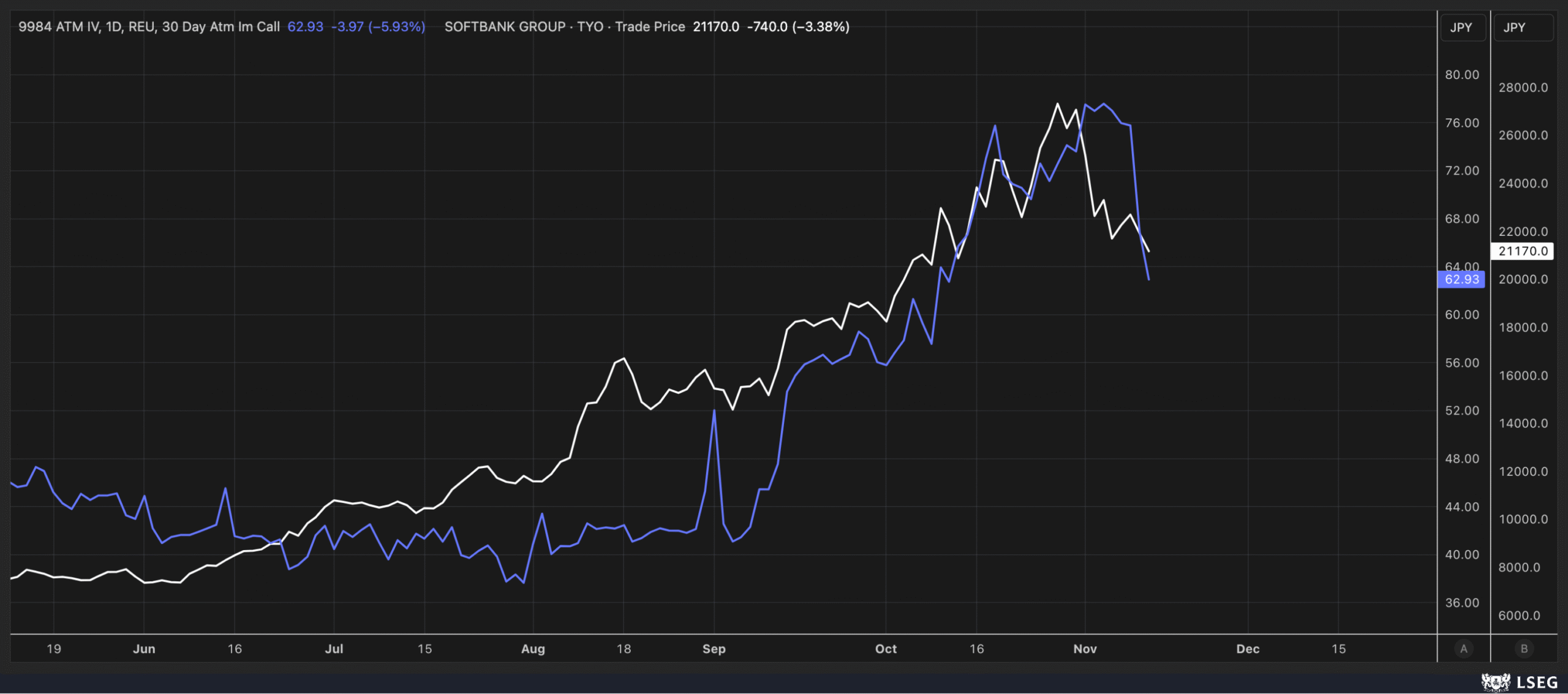
Despite the S&P being down about 1.6% to 1.7%, the RSP was down less, only about 1.1%. That again gives us a sense that we’re seeing an unwind of the AI-related names, which could simply take us back to where we were before earnings — when the focus was all about the equity-dispersion trade and the volatility-dispersion trade needing to unwind.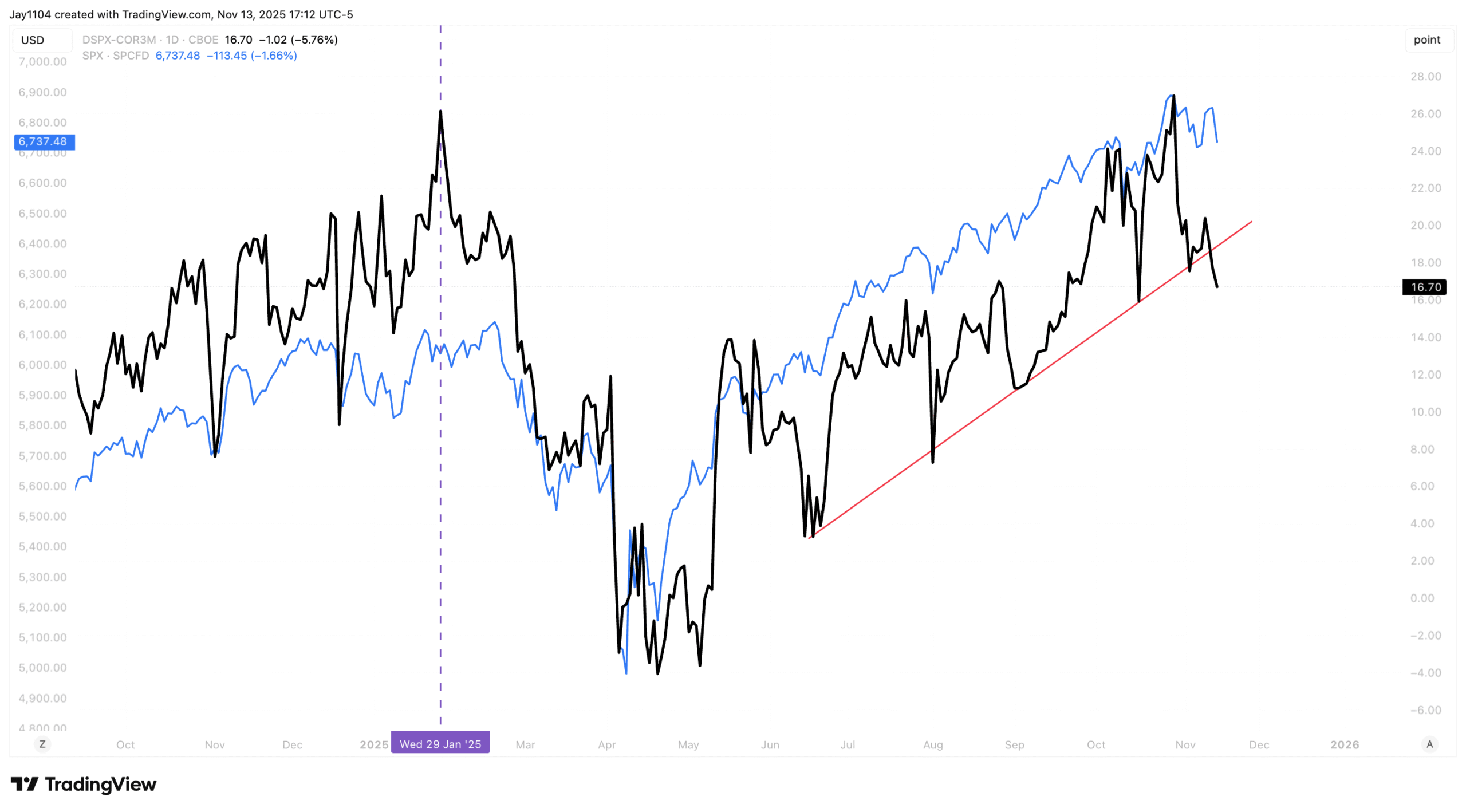
Meanwhile, the average repo rate traded on Thursday, according to DTCC, was around 4% again. So if you were looking for liquidity conditions to ease, that certainly didn’t happen on Thursday. It might happen today, simply because it’s a non-settlement date, but next week we’ll have more settlements to contend with — including an extra one.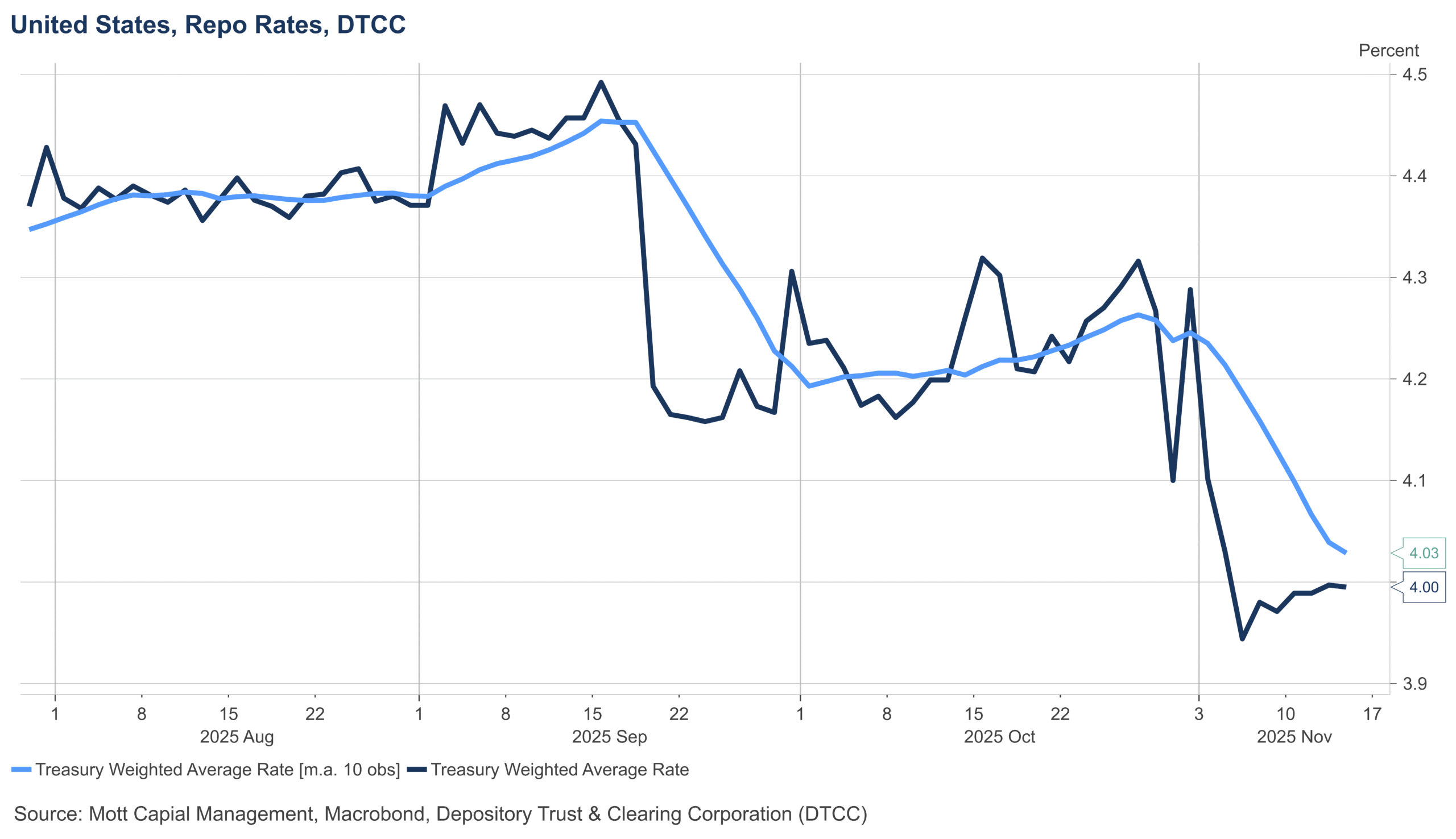
There will be $26.7 billion settling on the 17th, $14 billion on the 18th, and $18 billion on the 20th. That adds up to roughly $60 billion in Treasury settlements next week, which will continue to keep liquidity conditions tight, whether the TGA is drawn down or not, because reserve balances are still extremely low.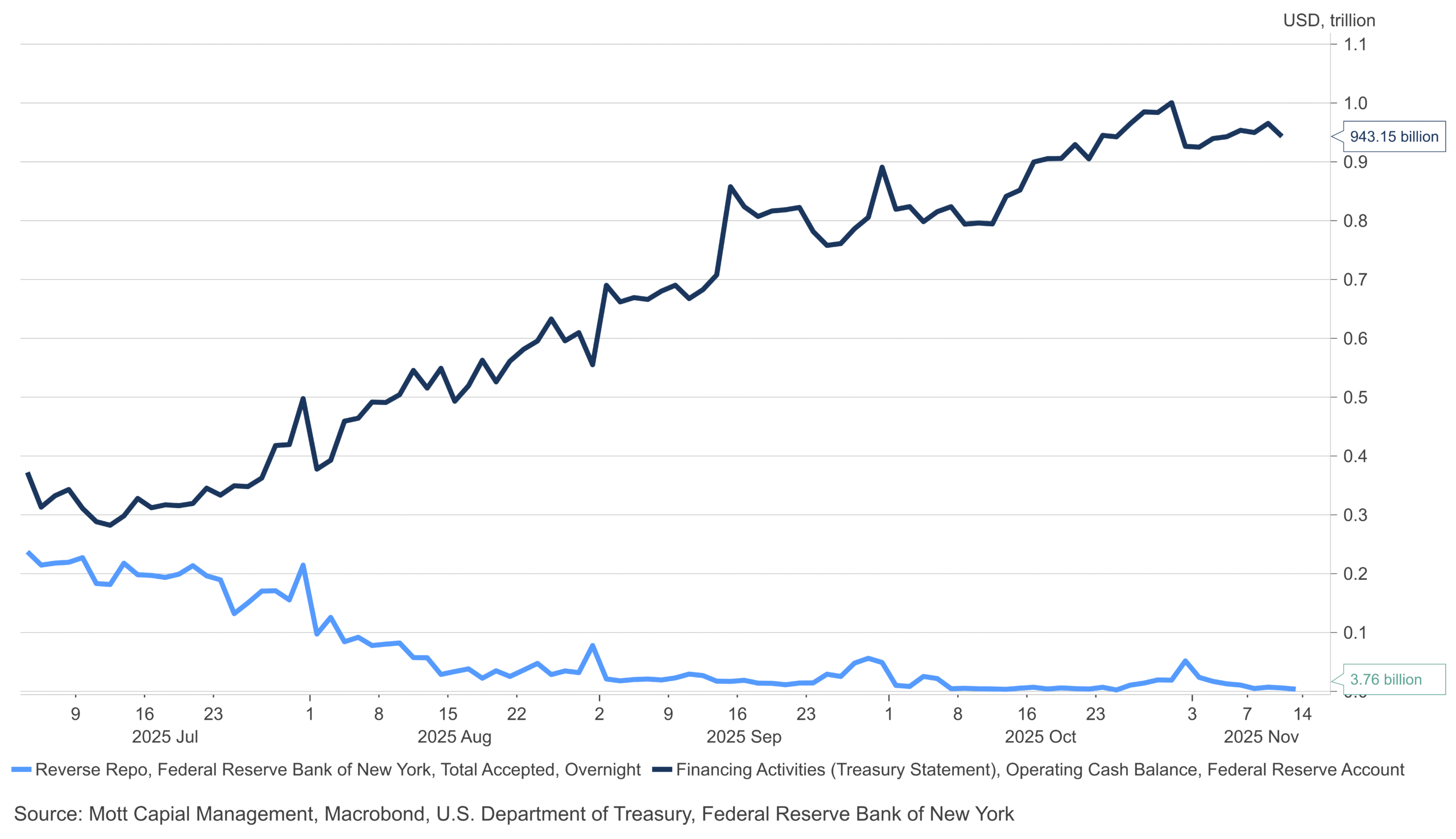
Even after this past week, reserve balances are only around $2.88 trillion, which is still at the very low end of the range and unlikely to move materially higher from here. Even if the TGA is reduced back to the $850 billion level, it would likely add only about $110 billion in liquidity — which is not going to make much of a difference at the end of the day.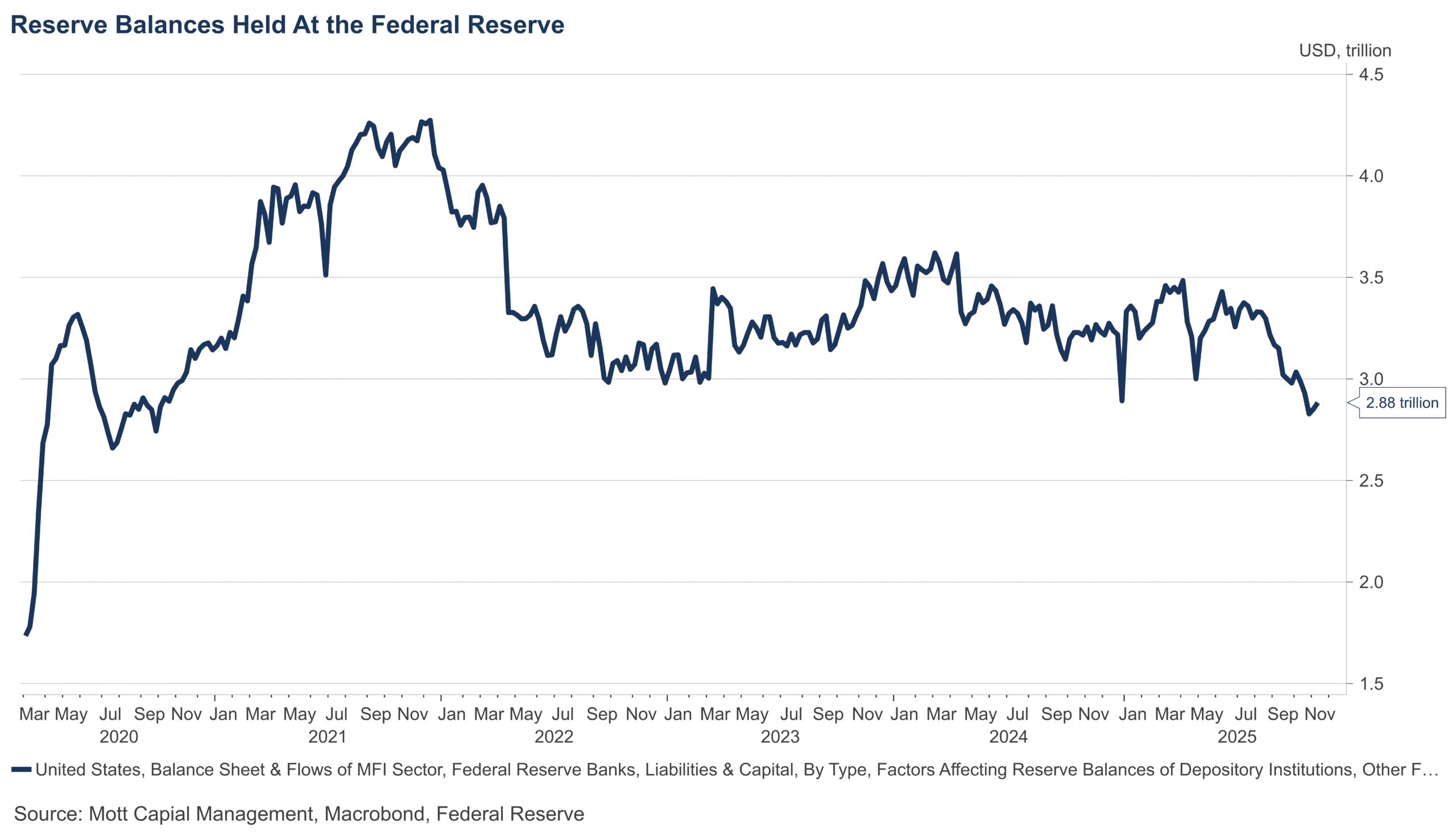
And almost right on schedule, 1966 continues to play out.